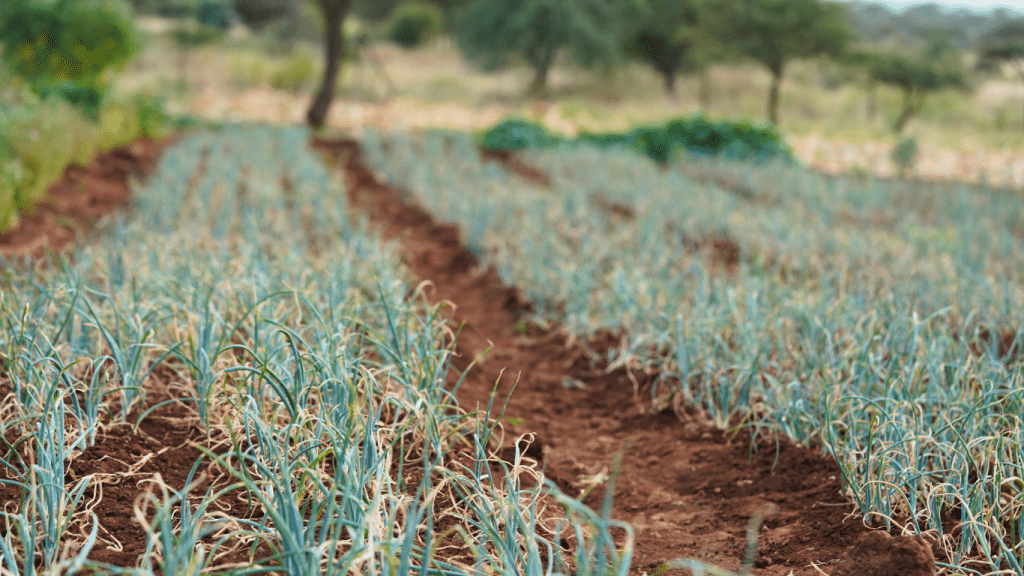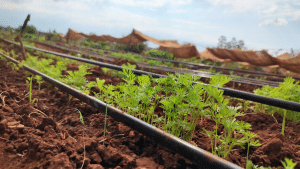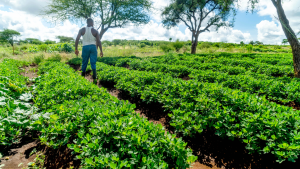
As the world grapples with the escalating effects of climate change, it’s imperative to explore and adopt sustainable solutions in every sector, especially agriculture. Organic farming offers a pathway to not only feed the world but also protect it. Ambokili Farm, nestled in a semi-arid region, stands as a testament to how transforming conventional landscapes into biodiverse ecosystems through organic practices can rejuvenate the earth and foster community development.
Carbon Sequestration
Organic farming systems are adept at pulling carbon out of the atmosphere and storing it in the soil, a process known as carbon sequestration. Unlike conventional farming, which relies heavily on chemical fertilisers and tillage practices, organic farming enhances soil structure and health. By incorporating compost, manure, and cover crops, organic farms like Ambokili Farm increase the soil’s organic matter content, thereby capturing more carbon and reducing greenhouse gas emissions.
Biodiversity: The Lifeline of Resilience
Biodiversity is at the heart of organic farming. Diverse ecosystems are more resilient to climate change, pests, and diseases. By promoting a variety of crops and fostering habitats for beneficial insects, birds, and other wildlife, organic farms maintain ecological balance and safeguard biodiversity. This diversity not only mitigates the impact of climate change but also contributes to food security and ecosystem services vital for life on Earth.
Water Wisdom: Preserving Our Blue Gold
Organic farming practices significantly improve water efficiency and quality. Through techniques such as mulching, cover cropping, and reduced tillage, organic farms retain moisture in the soil, reducing the need for irrigation and helping conserve water. Moreover, by abstaining from synthetic fertilisers and pesticides, organic farms prevent water pollution, ensuring that rivers, lakes, and groundwater remain clean for communities and wildlife.
Energy Efficiency: Doing More with Less
The energy-intensive production of synthetic fertilisers and pesticides accounts for a significant portion of agricultural greenhouse gas emissions. Organic farming, however, relies on natural processes and inputs, which drastically reduce energy consumption. By harnessing the power of compost, crop rotations, and natural pest management, farms like Ambokili Farm minimise their carbon footprint and contribute to a healthier planet.
Nourishing Soil, Nourishing Life
Healthy soil is the foundation of a healthy planet. Organic farming practices enhance soil fertility and health, promoting vigorous plant growth and higher resilience to extreme weather conditions. This not only ensures a stable and nutritious food supply but also supports the well-being of future generations by preserving the earth’s most precious resource: its soil.
The Future
As we stand at a critical juncture in the fight against climate change, the choices we make today will define our future. Organic farming offers a holistic approach to address multiple environmental challenges simultaneously. It’s a strategy that not only mitigates climate change but also enhances food security, biodiversity, and community well-being.
Ambokili Farm serves as a shining example of how adopting organic farming practices can transform semi-arid terrains into thriving ecosystems. It’s a call to action for communities, farmers, and policymakers worldwide to embrace organic agriculture as a pivotal solution in our collective journey towards sustainability and resilience.
As we continue to witness the transformative power of organic farming, let us support, advocate, and expand these practices. Together, we can combat climate change and pave the way for a sustainable and prosperous future for all.






